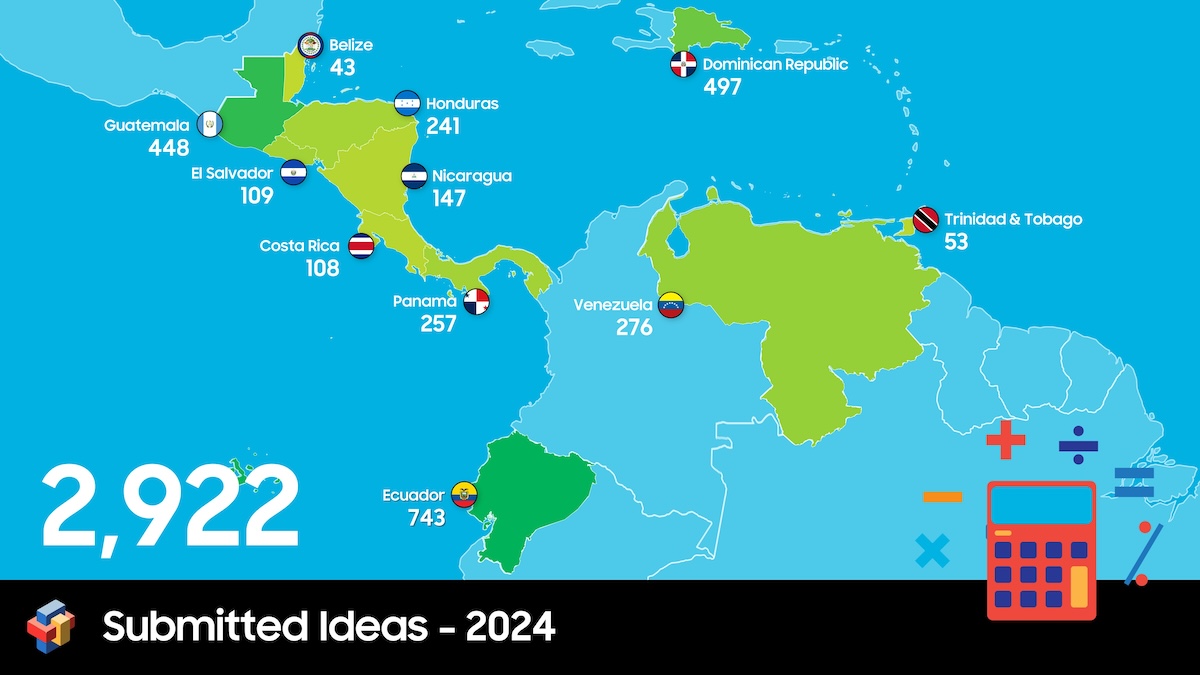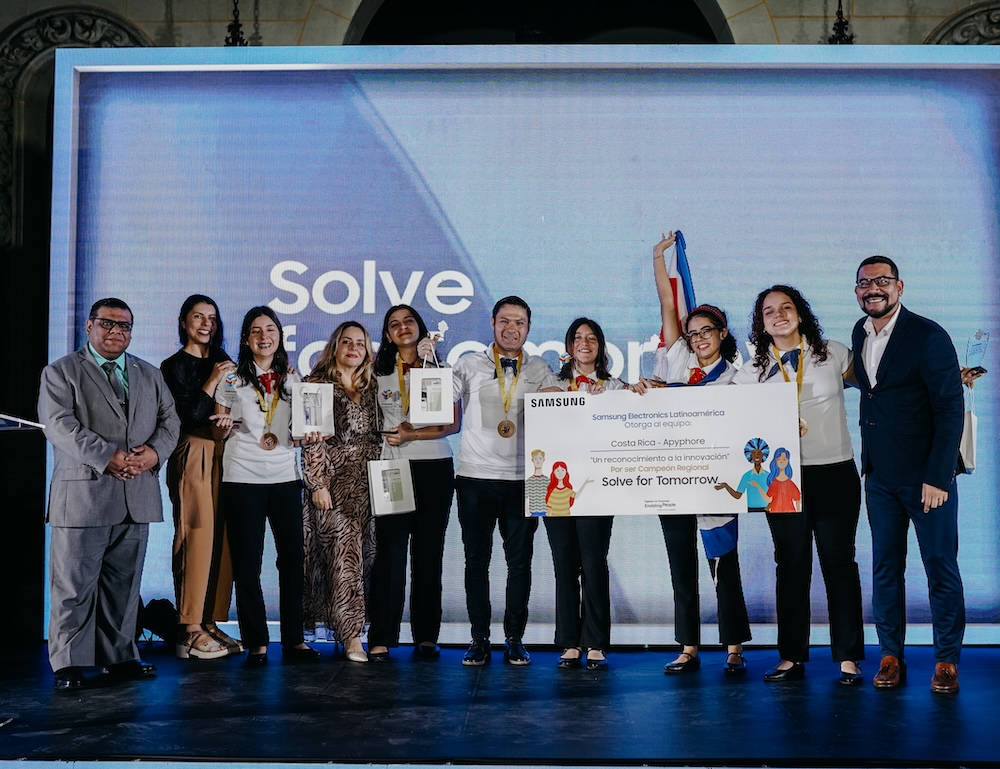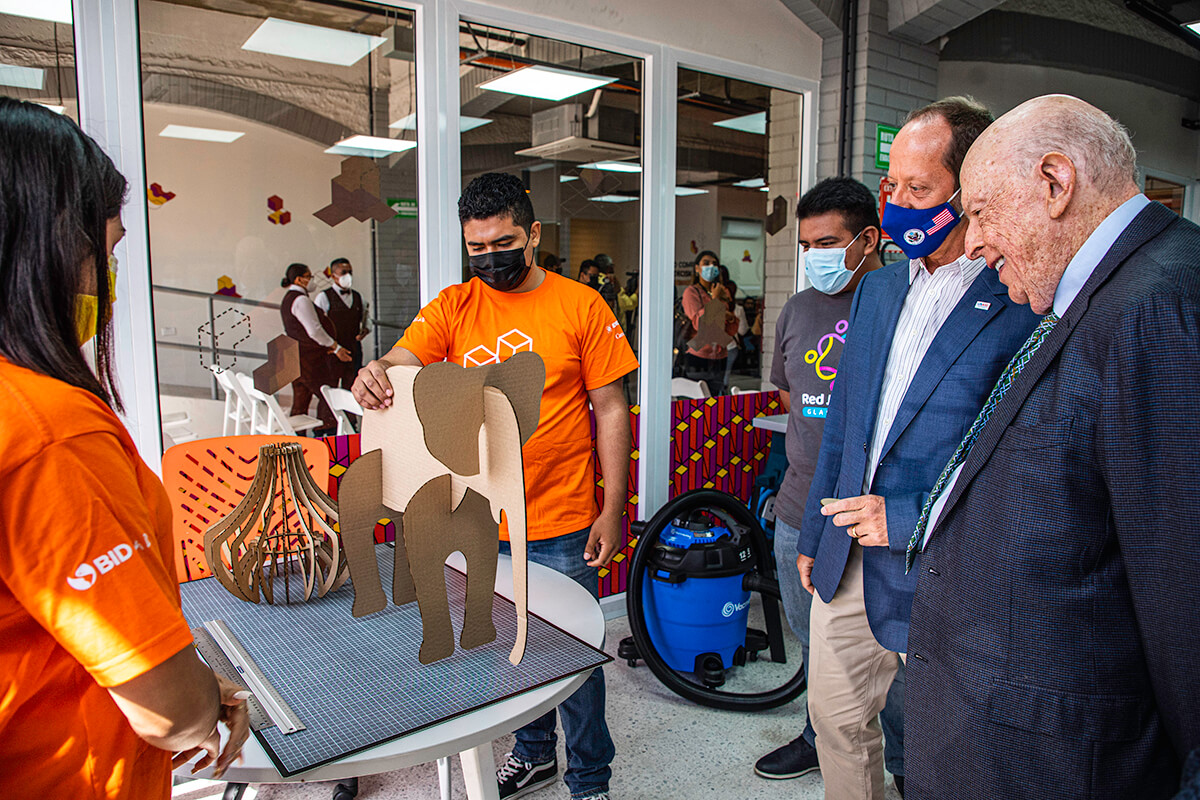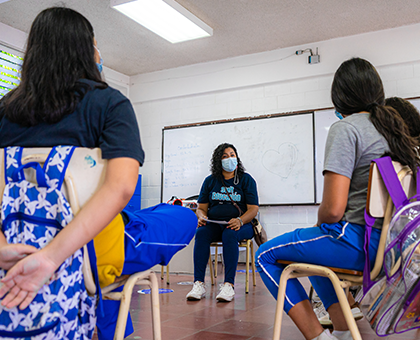Costa Rica stands out as regional champions at Samsung and Glasswing’s Solve for Tomorrow contest
Published on December 5, 2024 by Glasswing
Through Solve for Tomorrow, a global program by Samsung Electronics, students from different countries are invited to use their STEM skills to make a difference in their communities.
This year, more than 120 teams entered the program. Costa Rica’s Colegio Técnico Profesional de Atenas was named regional champion for its innovative beehive project, “Apyphore.” Developed by five students under the guidance of their teacher, the project aims to transform bee care and management, enabling the safe and sustainable extraction of bee venom (apitoxin). Apitoxin is a highly valued element in the bee-keeping industry.
A New System for Bee Preservation
The Apyphore project features a hive with two sections. One provides a safe habitat for bees, and the other enables non-invasive apitoxin extraction using electrostatic shocks.
This process protects the bees’ health by incorporating sensors and cameras to monitor the hive in real time. The technology allows beekeepers to manage the hive remotely.
The project displays advanced technology as well as a commitment to environmental conservation and biodiversity. Its key benefits include:
- Protecting bee health: A non-invasive extraction method ensures the well-being of hives.
- Real-time monitoring: Sensors and cameras provide constant updates for effective remote management.
- Efficient extraction: Apitoxin is collected without harming bees, fostering responsible beekeeping.
- Supporting biodiversity: Apyphore aids in preserving bee populations, vital for healthy ecosystems.
Chris Martinez, Project Director at Glasswing, said, “The success of the Costa Rican team with Apyphore demonstrates the incredible potential of youth to transform their communities through innovation and sustainability. At Solve for Tomorrow, we aim to inspire young people to use technology to address global challenges. This project exemplifies how creativity and teamwork can positively impact our planet.”
Impact and Growth of Solve for Tomorrow
This year’s competition had:
- Around 12,821 registered participants
- More than 2,922 valid ideas
- About 3,500 hours of training in design thinking, Lean Canvas, and effective communication skills

A highlight was Trinidad and Tobago joining as the second English-speaking country. Next year, the program is set to expand further with the inclusion of Paraguay and Uruguay, broadening its impact among young innovators committed to sustainability.
The success of the Costa Rican team with Apyphore demonstrates the talent and dedication of young people in creating technological solutions that benefit their communities and advance environmental conservation.
About Solve for Tomorrow
Solve for Tomorrow is a global program from Samsung Electronics that invites students to use their science, technology, engineering, and math (STEM) skills to make a difference in their communities. It provides a platform for young people to transform innovative ideas into real solutions that can improve people’s lives. In the process, they acquire soft skills and learn teamwork, leadership, and assertive communication.
Each year, hundreds of teams enter the program. Only one winning team is selected for each participating country. These teams then advance to a regional competition; from there, an overall champion is selected. Each project must be based on STEM principles and be community-based, sustainable, and original.
Beyond the competition, student participants gain valuable skills in critical thinking, communication, and other life skills, helping them refine their projects and develop both personally and professionally.




